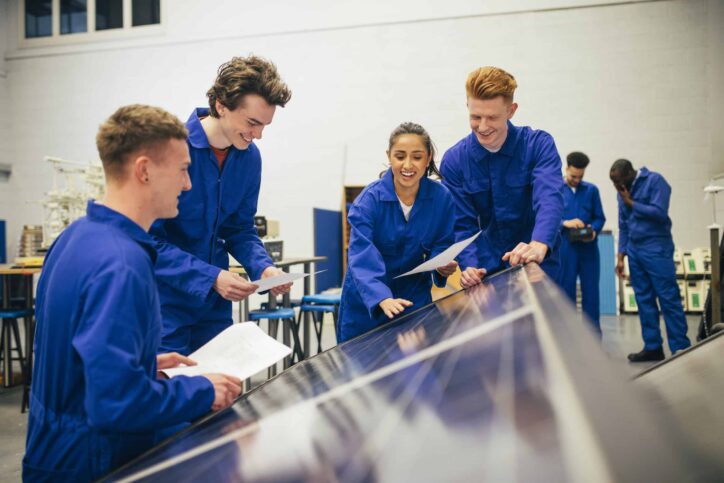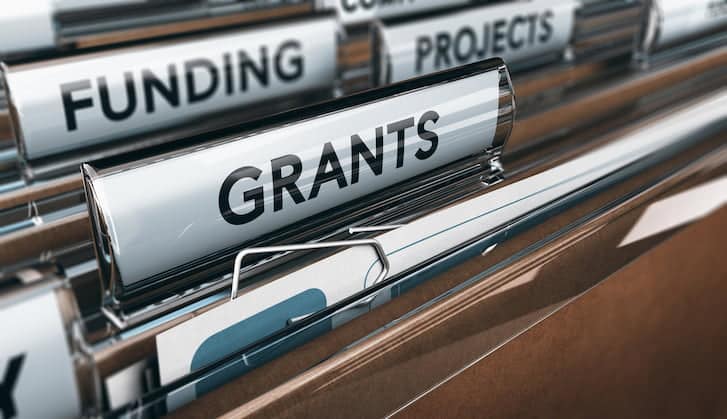Technology advancements and discoveries during ophthalmologist Ian Constable’s 50-year career are but a blink of the eye in what needs to be achieved with 250 million vision impaired people globally and an ageing population.
The need for scientists to make even more discoveries has never been greater, says Constable, 75, who started up the Lions Eye Institute (LEI) more than 30 years ago and still works there full-time.
And this is despite some life changing discoveries throughout that half century that have made life more comfortable for thousands.
His life’s work has been to restore sight and has included establishing Perth as a world-renowned scientific centre that combines research to prevent blindness with fee-paying eye care services.
One of the most significant breakthroughs to come out of LEI has been the surgical treatment for glaucoma – known commercially as the Xen Gel Stent – which was approved for use in Australia this year, following approvals in Europe and the United States.
The eye-lash sized microfistula tube invented by LEI researches reduces intraocular pressure. It took about 20 years of research including human trials before being commercialised in the United States.
“It’s a magnificent story because glaucoma is the second most common cause of blindness in the world,” Constable says. “A huge amount of money, many, many billions of dollars is spent on drops to keep the pressure controlled in the eye to stop glaucoma progressing.
“The micro stents, as they are called, are starting to have an enormous impact with 50,000 of them implanted worldwide. It has just started in Australia, even though all of the original research was done here at LEI in Perth and the first humans were done here.
“Recently, there has been a six-year follow up of the first patients, so it has been a long, long story.”
Constable says it took “many millions” of dollars spent on research and a whole gamut of STEM experts to achieve.
“In the first instance we require chemistry to take pig collagen and turn that into a tube the size of a human hair. That technology took a long time and quite a lot of money. We then need biology to test how this would react with tissues. We then had to get this human hair tube into the eye safely and that took robotics, so engineering.
“We then had to do tests in animals, then humans. At that point the technology was taken to the United States and US$90m was raised to do global trials.
“When those trials were completed this was deemed to be a success and the venture industry then sold the tube to a multinational company called Allergan for US$750m.
“It started in a single lab with Professor Dao-Yi Yu and Professor Bill Morgan thinking up this project and then progressively working through it.”
Researchers also developed an artificial cornea which received American Food and Drug approval and was sold to a company in New York.
Constable, along with Professor Elizabeth Rakoczy, this year announced a new gene therapy for a macular degeneration – the most common cause of blindness in the developed world – that could stop injections into the eye.
It went through human clinical trials in Perth before being licensed to US company Avalanche Biotechnologies, where so far US$400m has been raised for future trials and research.
“So there are now 100 people working in one building in the Silicon Valley all because of the research in Perth,” Constable says.
It’s the culmination of 20 years of research.
“I am a very strong believer that any breakthroughs or scientific discovery is only as good as the commercialisation because if it is not commercialised it never reaches the people and therefore you’ve had a great time, you get a good boost for your ego but the public don’t benefit unless it’s commercialised.”
Constable says finding the right people and encouraging students to take up STEM subjects was absolutely vital.
“Everything that has been achieved here has had a science base. Not just doctors thinking of a good idea but scientists of all persuasions: mathematicians, biologists, engineers, other types of optical engineers, technicians, have all put the projects together.”
How technology has changed
Constable says the transformation of cataract operations over the last 50 years is a poignant example of why research and ultimately making lives better must never stop.
“Cataract operations were done then by a simple incision in the eye, the lense was popped out and one stitch was put in and because all that was unstable, you lay on your back for the next six weeks with a sandbag on either side of your head.
“And you kind of managed eating and going to the toilet without getting up.
“That is transformed now, with all of the technology and all of the science and maths that have gone into it, to a totally predictable procedure that takes 15 minutes that’s automated with fine equipment and the person is in outpatients for two hours.
“They go home and they get checked the next day and the day after that they go back to work. They see well a day later.”
While Prof Constable, who still works full-time after cutting back from seven days to five, says he’s no plans to retire.
“I have some mentors or idols that are still working well into their 80s and even 90s. If your health is ok and your brain is ok, I think you should (keep working).”
Find out more about CCI Member, the Lions Eye Institute here.
► CCI supports the future workforce, STEM and partnerships between business and research.






